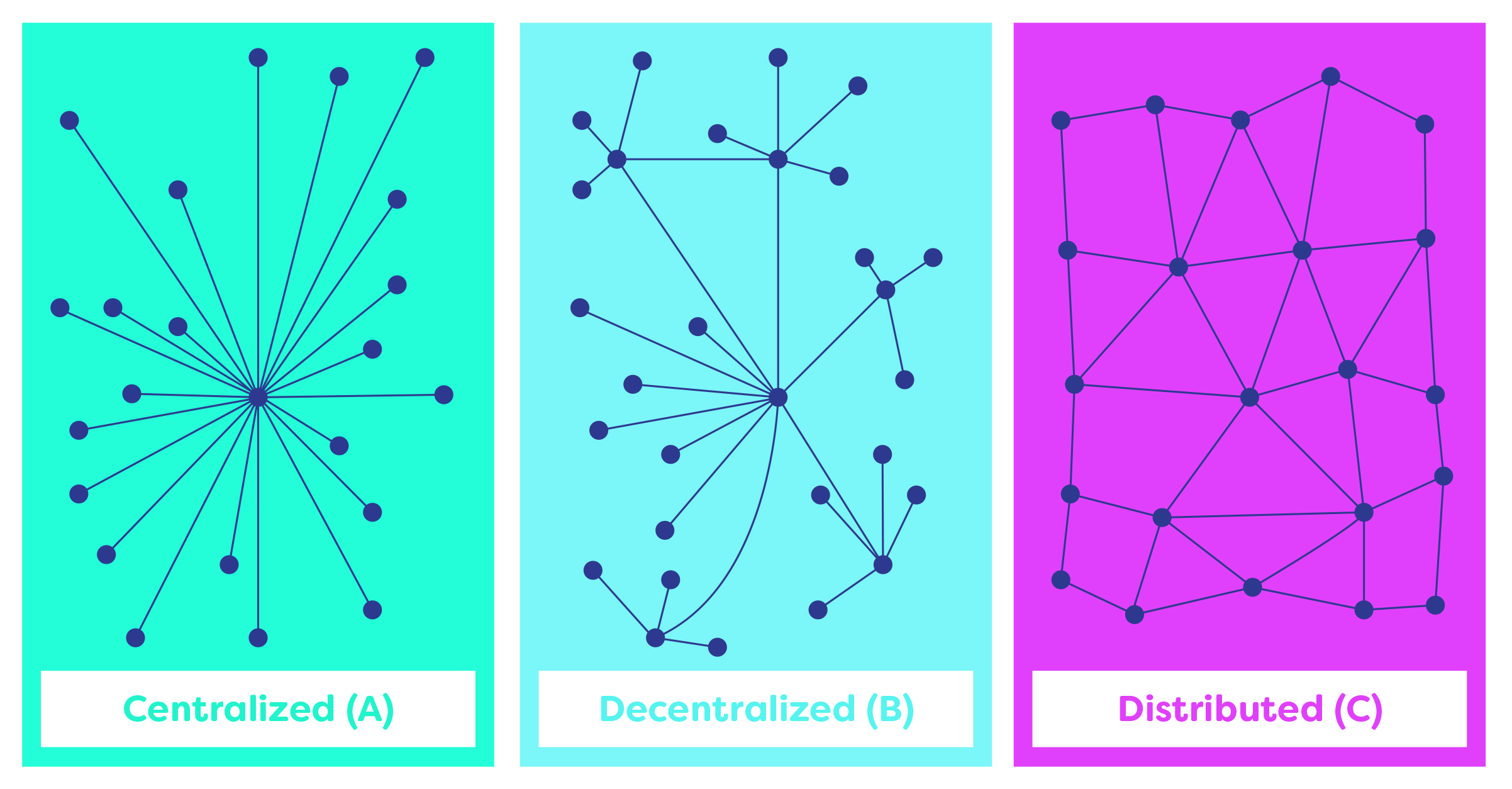Introduction
The blockchain is designed to be a decentralized technology. This means that anything that happens on it is a function of the network as a whole. Decentralization means the network operates on a user-to-user (or peer-to-peer) basis. The forms of mass collaboration this makes possible are just beginning to be investigated.
A distributed system is a model in which components located on networked computers communicate and coordinate their actions by passing messages. With this definition, a decentralized system is also a distributed system.
A key point about decentralization is that there’s no central point of control. Large Internet applications and services are distributed, but most are centralized because the company running them can alter or stop the system.
Ethereum is an example of both a distributed platform, as well as a decentralized platform. The platform allows developers to build decentralized applications, as opposed to distributed applications which run on some proprietary cloud.
Further Defining Centralized vs. Decentralized vs. Distributed
Take a look the above graphic – picture each dot as a computer (or group of computers known as nodes).
Centralized: A system with closely coupled components (in terms of location and authority).
Distributed: A system where components might span geographical boundaries but are owned and controlled by a single entity (with the advent of cloud computing this is a very common scenario). Trust in such a system is still centralized. Think of Google. The principal idea here is about communication and message passing.
Decentralized: A system with nodes that are geographically distributed and under the control of respective node operators. Each node is an equal amongst others within this system and hence, trust is equally distributed. This is what makes the system decentralized. Think of a blockchain based project like Ethereum. The principal idea here is decision locality.
For a system to be decentralized, it has to ensure that trust is “distributed” across all participants of the system. Decentralized systems provide the benefit of being distributed and authority agnostic.
Additional Key Ideas To Explore
- Federated systems: a cohesive unit formed of smaller subunits which collaborate to form the whole, but which retain significant local autonomy. The principal idea here is retaining autonomy.
- Peer-to-peer systems: the systems in which a set of peers are equally privileged, equipotent participants in collaborative goals. The main idea is equality of power or equipotency.
Let’s Explore Some Key Terms In Blockchain
Decentralized Application
Also known as dApps, decentralized applications that run without the control of a central authority (like a software company or government). Ethereum is the first and largest decentralized application platform. More information can be found here.
Decentralized Exchange
A peer-to-peer exchange that allows users to buy and sell cryptocurrency and other assets without the control or fees of a central authority. Unlike central services like Coinbase.
Decentralized Organization
A smart-contract based organization that uses automated rules to run without a central authority. Funding, voting, and more are all handled via platforms like Ethereum.
Note: Not to be confused the “The DAO” which was an investor-funded and directed venture capital crowd-fund built on the Ethereum network. It was hacked in June 2016 and subsequently shut down.





